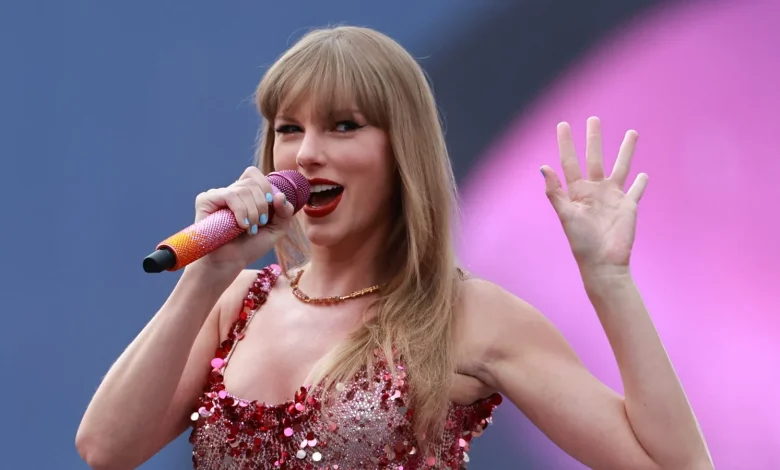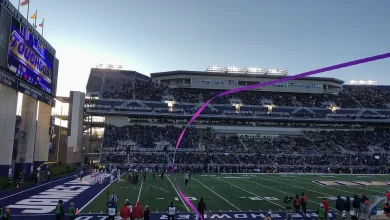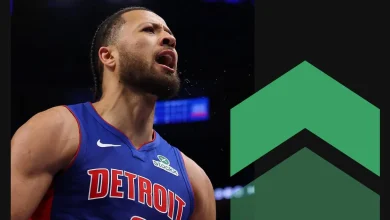Parasocial – that one-sided feeling you really know a celebrity – is Cambridge Dictionary’s word of the year

Do you feel like you know Alan Carr and what he would say or do? What about Taylor Swift, or even Donald Trump?
The new Cambridge Dictionary word of the year for 2025 has been revealed: “parasocial” – defined as involving or relating to a connection that someone feels between themselves and a famous person they do not know.
Psychologists have studied how the rise of one-sided parasocial relationships has redefined fame, fandom and celebrity.
For example, when pop star Taylor Swift and American footballer Travis Kelce announced their engagement, many fans felt a strong connection to them despite most not having met them.
It’s easier to form parasocial relationships with some celebrities than others. Pic: PA
The parasocial relationships between people and online influencers and AI chatbots is a growing phenomenon. Many people even value parasocial relationships more than some real ones.
A 2024 study revealed that while people found their emotional needs were still best met by friends and family, parasocial relationships with YouTubers were valued more than relationships with “real” acquaintances or colleagues.
Colin McIntosh of the Cambridge Dictionary said: “What was once a specialist academic term has become mainstream.
“Millions of people are engaged in parasocial relationships; many more are simply intrigued by their rise.”
He added that the Cambridge Dictionary website had seen a spike in the number of people searching for the word parasocial.
If you consume a lot of news you might feel like you know presenters you see a lot.
Read more: What are parasocial relationships?
The rise of parasocial relationships
The term parasocial dates to 1956, when two University of Chicago sociologists observed that television viewers engaged in parasocial relationships with on-screen personalities, resembling those they formed with ‘real’ family and friends.
They observed how the flourishing television industry brought the faces and on-screen personalities of actors into viewer’s homes.
Simone Schnall, professor of experimental social psychology at the University of Cambridge, said: “We’ve entered an age where many people form unhealthy and intense parasocial relationships with influencers.
“This leads to a sense that people ‘know’ those they form parasocial bonds with, can trust them and even to extreme forms of loyalty.
“Yet it’s completely one-sided.”
Perhaps you think you know what Ronaldo would say. Pic: Reuters
She went on to say that as trust in mainstream media breaks down, people turn to individual personalities as authorities.
After spending so many hours consuming content from these personality authorities, consumers end up developing parasocial bonds, seeing them more as friends, family or even cult leaders.
She added that AI tools like ChatGPT, which many people treat as a friend, is adding a new dimension to parasocial relationships.
She warned that: “This is an illusion of a relationship and group think, and we know young people can be susceptible for this.”
Parasocial relationships also carry other risks.
Following someone else’s experiences day in, day out, inevitably leads to social comparison – and can risk people developing unhealthy ideals or expectations.
Other new words this year
Other new words in this year’s Cambridge Dictionary include “delulu”, a play on the word delusional, gibberish word “skibidi” and “tradwife”, short for traditional wife.
Other words noted as having an impact this year include “slop”; content on the internet that is of very low quality, especially that created by AI.
Another is “memeify”, meaning to turn an event, image or person into a meme – an idea, joke, image or video that is quickly shared on the internet.





